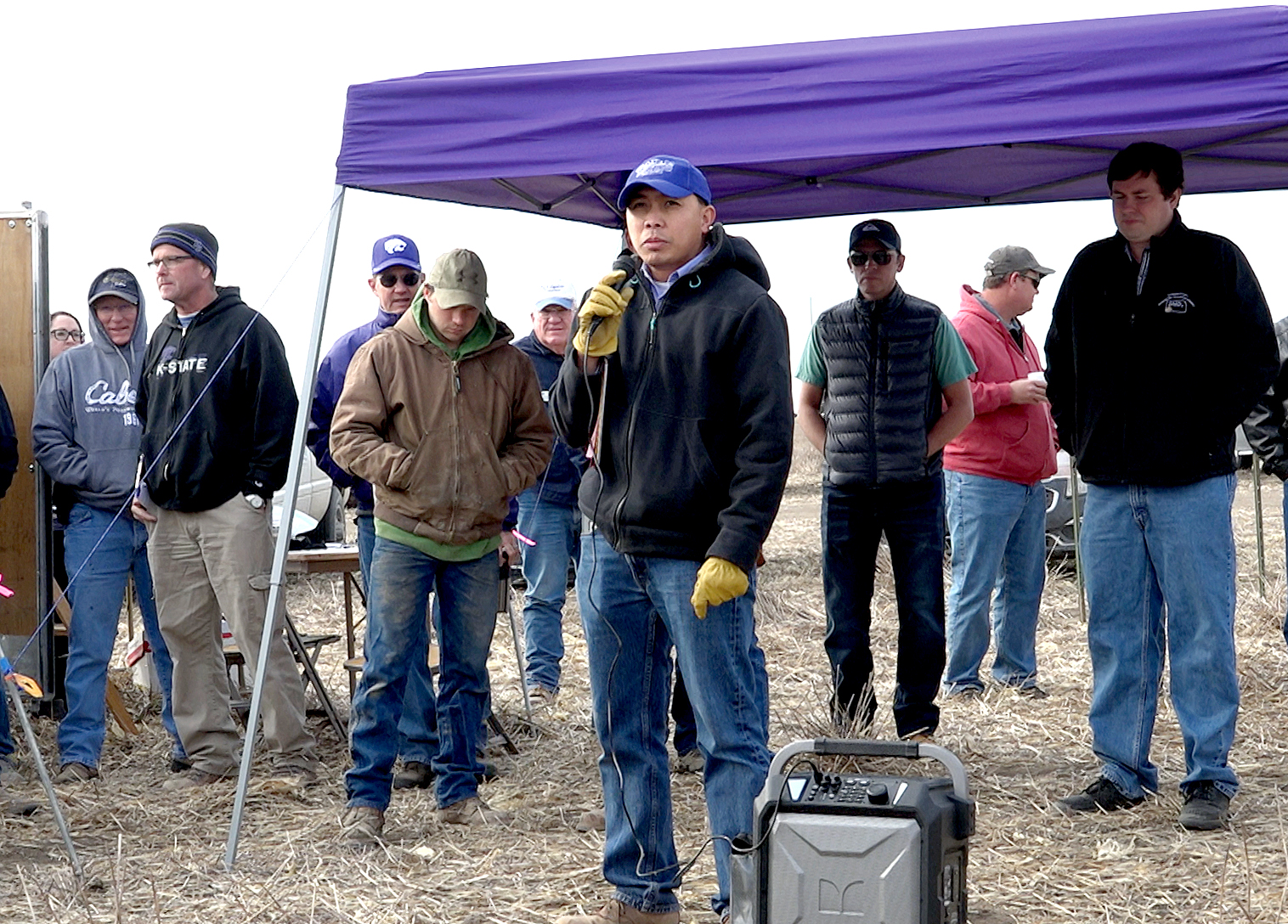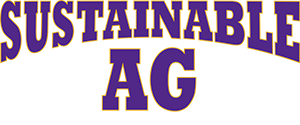
Agricultural engineer Jonathan Aguilar (center) talks to producers and vendors during a water sensor field day at a water technology farm. | Download this photo.
Sustainable Ag: Connecting the dots
K-State, Kansas Water Office work with farmers to create network of Water Technology Farms
April 30, 2018
MANHATTAN, Kan. – Since a move to western Kansas from Idaho 14 years, ago, Tom Willis has worked to figure out the best crops, planting and tillage practices and the most efficient ways to use water in his farming operations. He’s owned T&O Farms near Garden City, Kansas, since 2013.
With diminishing water in the Ogallala Aquifer in western Kansas and portions of the state often in dry and sometimes drought conditions, farmers such as Willis are continually searching for ways to grow their crops, conserve water, be profitable and leave resources for future generations.
He and other farmers have teamed with K-State and the Kansas Water Office to establish a network of Water Technology Farms, where irrigation technology is demonstrated, research is conducted and water conservation is supported. New technologies, management techniques and cropping patterns can be tested on a larger scale on the privately-owned farms than can typically be done on university property.
“I wish all the wells out here were 1,000 gallon-per-acre wells, but they’re not,” Willis said. “I’m excited that I’m not just sitting back and just allowing whatever happens, happens. We’re being proactive. And so whatever happens, I can look myself in the mirror and say I did everything I knew how to do.”
Willis and other farm owners work with K-State Research and Extension agricultural engineer Jonathan Aguilar and his research colleagues to conduct irrigation and water management research on some of the farms.
“(Jonathan) helps me pull the data together, interpreting what it means. I can’t say enough about the State of Kansas and the extension agency and the things they’ve been as a resource. They’ve been great,” Willis said.
The farms have hosted educational events for the public to show how different technologies work.
“The hope is that by demonstrating what we’re demonstrating, that we can get more farmers to say, ‘hey, the risk isn’t as high as you think it is,’” Willis said.


